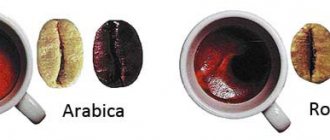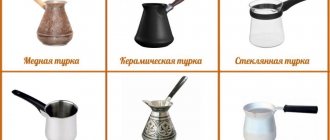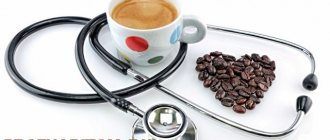Calcium is one of the most important microelements for our body. The strength of bones, teeth, nails, the beauty of hair, skin - everything depends on calcium. It regulates blood clotting processes and is needed for the absorption of other minerals and vitamins. We all know that a lot of calcium is found in dairy products - for example, in cottage cheese. But often we don’t think about the fact that there are foods that can inhibit the absorption of calcium or even begin to wash away the beneficial microelement from the body. Anna Ivashkevich, nutritionist, clinical psychologist-dietitian, member of the National Association of Clinical Nutrition, told us about the intricacies of calcium absorption and what negatively affects this absorption :
Many microelements are important for the human body. Calcium is one of them. Most of it is found in bone tissue and tooth enamel. Calcium performs the following functions:
- participates in the process of blood clotting;
- regulates a variety of universal intracellular processes - muscle contraction, exocytosis, including the secretion of hormones and neurotransmitters;
- participates in the regulation of metabolism and functions of the endocrine system.
A lack of calcium can lead to disruption of the heart muscle, hypertensive crisis, seizures and other complications.
Dangerous couple. Calcium and vitamin D are useful, but... harmful? More details
Provides calcium
Dairy products must be present in the diet - they contain a large amount of calcium, even children know this. It is recommended to consume cottage cheese, fermented baked milk, and kefir at least once a day.
Next on our list are:
- cereals, including whole grain bread and buckwheat;
- legumes and peas;
- oranges;
- greenery;
- nuts;
- oatmeal;
- dried apricots, raisins and other dried fruits;
- persimmon;
- bananas;
- green tea.
You can check the level of calcium in the body in absolutely any clinic. This procedure is called a biochemical blood test for calcium.
It is advisable to eat foods containing calcium in the first half of the day, best in combination with vitamin D.
Lash out calcium
Let me make a reservation right away that no one is saying that the following foods should be excluded from your diet; it is important to maintain moderation.
Palm oil . It interferes with the absorption of calcium, it generally reduces the degree of absorption of many useful substances. Palm oil caused serious problems with baby food about 10 years ago. At that time, rickets, a disease associated with a lack of vitamin D, was spreading in one of the CIS countries. This vitamin helps absorb calcium, and calcium affects bones. The children were given calcium and vitamin D, but this did not help. Research has shown that the whole problem was in large quantities of palm oil, which was included in infant formula and interfered with the absorption of vitamins and minerals.
Palm oil is now used in a very large number of products, often in dairy products, baked goods, and confectionery products.
It is possible that the increase in the number of spinal pathologies in children and a large number of scoliosis are associated precisely with the presence of palm oil in the diet.
Coffee . Drinking large amounts of coffee removes calcium from the body, and other minerals too. If you love coffee, then it is advisable to introduce more protein, calcium-containing foods into your diet - for example, dairy products, sesame (although it is not completely absorbed, it contains a lot of calcium). If we talk about cottage cheese, then preferably no more than 5% fat content. Previously, it was believed that calcium and vitamin D were absorbed together with fatty foods, but modern studies have proven that with low-fat cottage cheese the absorption percentage is higher.
As for the amount of coffee, approximately 4 cups per day is acceptable. I'm talking about 30ml espresso cups. If you drink more espresso shots per day, you already run the risk of worsening your bone health.
Sweets . Sugar interferes with calcium absorption. If you eat a large amount of sweets, your intestinal microflora is disrupted, and all beneficial substances are absorbed in the intestines.
The amount of sweets equivalent to 2 slices of cake per day becomes problematic. That is, if you drank a glass of soda (which has a lot of sugar) and ate a cake, you have already harmed yourself. Let us remember that buns and cakes often also contain palm oil, resulting in double harm to the body.
In facts and figures: 99% of all calcium in the body is found in the teeth Read more
Sweet sparkling water . As I already said, it contains a lot of sugar. And this interferes with intestinal function. Soda generally creates a pathogenic dysbacterial environment in the intestines, and it is extremely difficult to absorb anything useful there. Some carbonated drinks contain caffeine and remove nutrients from the body, just like coffee.
In addition, animal fats (beef, for example), foods containing large amounts of salt, as well as alcoholic drinks, even low-alcohol ones such as beer or cider, negatively affect the absorption of calcium. If you drink them regularly, in noticeable quantities, you are harming yourself and leaching calcium from your body.
Coffee - do you need it?
Caffeine is one of the most popular drugs in the world. We consume caffeine in coffee, tea, cocoa, chocolate, some drinks and some medications. The actual sources of caffeine are coffee beans, tea leaves, kola nuts and cocoa beans. Pure caffeine is odorless and has a bitter taste. Some people think that by drinking decaffeinated coffee they are eliminating the harmful effects. This is true when it comes to caffeine. But this creates another danger. After all, in order to rid coffee beans of caffeine, they are treated with chemicals. And it’s not clear which is more harmful. Caffeine flushes calcium from the body. As a result of excessive coffee consumption, bones become fragile. True, if your diet includes foods rich in calcium, then you can still afford one or two cups of coffee a day. In any case, eat 15g every day. roasted almonds to replenish your daily calcium intake of 1500 mg. In addition to almonds, it’s a good idea to drink some kind of vitamin complex, because coffee removes not only calcium, but also magnesium, potassium, sodium and a number of other microelements.
Drinking very hot tea or coffee with milk increases the risk of developing esophageal cancer by four times. This conclusion was reached by Spanish scientists who analyzed the results of five studies. Coffee without milk and many warm drinks do not cause negative effects. These data were published in the International Journal of Cancer.
According to epidemiological studies, esophageal cancer is particularly common in some regions of Latin America - northeastern Argentina, southern Brazil, Uruguay and Paraguay. Residents of these countries traditionally drink a lot of coffee and mate through a straw, which causes very hot liquid to enter the esophagus.
Coffee contains not only caffeine, but also much more - acids, aromatic compounds, coloring and flavoring substances. Which of these substances enter the body depends on the method of preparation, roasting, concentration and type of coffee. Apparently, the beneficial effects of coffee on the stomach and intestines are associated with the action of these accompanying substances. Coffee increases the secretion of gastric juice, and its effect is equivalent to that of meat broth. If after a heavy lunch or breakfast you drink a cup of black coffee, after 20-30 minutes the acidity in the stomach will reach its maximum, and digestion and absorption of food will be faster and more efficient. Due to these features, black coffee is not recommended for people with peptic ulcers and gastritis with high acidity.
Coffee has been scientifically proven to be harmful to expectant mothers. If a woman drinks at least 4 cups of coffee a day during pregnancy, the risk of miscarriage is about 33%. But as soon as a pregnant woman reduces her coffee consumption to 3 cups, the harm from coffee drops rapidly. The risk of fetal death in the womb is reduced to 3%. The harm of coffee is especially strong during pregnancy from 20 weeks.
It is well established that coffee interferes with the absorption and washes away calcium, manium, potassium, sodium and some other trace elements from the body. Therefore, if you like coffee, be sure to take vitamin complexes or eat more foods rich in the listed microelements. For example, after drinking a cup of coffee, eat 15 grams of almonds - this will return your calcium balance to the proper level.
The dangers of coffee in this sense affect women more than men. Surprisingly, this is a scientific fact. If a woman drinks more than 4 cups of coffee a day, then she has a very high risk of developing osteoporosis. This becomes especially dangerous after menopause. Also that coffee lovers should especially take care of their bones and be sure to take calcium.
Some people think that by drinking decaffeinated coffee they are eliminating the harmful effects. This is true when it comes to caffeine. But this creates another danger. After all, in order to rid coffee beans of caffeine, they are treated with chemicals. And it’s not clear which is more harmful.
Let's consider the harm of coffee for humans in general. Coffee is addictive. And this is also a proven scientific fact.
Women who drink liquids containing caffeine (including coffee) lose more calcium from their bodies than those who avoid caffeine. As a result, the risk of developing osteoporosis increases. Tip: Drink 1 glass of milk for every couple of cups of coffee to maintain normal calcium levels in your body.
Coffee worsens insomnia.
Women who drink more than 4 cups of coffee per day have a double risk of developing incontinence compared to those who drink less or no coffee.
Withdrawal of caffeine from the body once it is used to it can cause headaches and lethargy.
Coffee increases the body's production of stress hormones, which can cause heart palpitations, increased blood pressure, and anxiety symptoms.
Caffeine increases the secretion of gastric juice, which is good when a person has just eaten, but is unacceptable for people with high acidity and ulcers.
Coffee is a rich source of caffeine as well as other active substances, of which only one - niacin - has nutritional value. It is produced when coffee beans are roasted. A cup of coffee contains about 1 mg of this vitamin. But you will have to drink 15 cups of coffee to get the daily dose required for an adult.
Caffeine is one of the most popular drugs in the world. We consume caffeine in coffee, tea, cocoa, chocolate, some drinks and some medications. The actual sources of caffeine are coffee beans, tea leaves, kola nuts and cocoa beans. Pure caffeine is odorless and has a bitter taste.
Caffeine. One of the effects of caffeine is associated with its interference with those processes in various places of the brain that are regulated by adenosine, including in the so-called reticular formation, which is responsible for the level of wakefulness of the body.
When adenosine binds to its receptors, it slows down activity and causes a feeling of fatigue. Since caffeine has a structure similar to adenosine, it binds to the same receptors, but there is no decrease in cell activity; on the contrary, it increases. In addition, the blood vessels in the brain narrow.
The body, in response to this increased activity of brain cells, acts as if the brain has detected the occurrence of danger. The pituitary gland secretes a hormone that causes the adrenal glands to synthesize more adrenaline. Adrenaline causes the heart to pump faster and the liver to release more glucose into the bloodstream so the body can use extra energy. In addition, caffeine constricts blood vessels, relaxes the airways, which makes breathing easier, and allows muscles to contract more easily. The body is mobilized for vigorous activity.
In addition to increasing energy, caffeine has other effects. It increases urine output and suppresses appetite.
Decaffeinated coffee, unfortunately, cannot be considered safer in most cases because the decaffeination process adds substances to coffee that may be more dangerous than the decaffeine they remove.
Starvation
Nowadays it has become quite fashionable to fast. Improper fasting affects bone mineralization processes. There is proper fasting - under the supervision of specialists, with the intake of mineral supplements. But rarely does anyone resort to it. Often girls decide to lose weight, starve, eat nothing at all, or at best drink water. The body is not a fool. He tries to keep all his systems in working order. And the most important thing is the work of the brain and heart; bones are secondary. Therefore, the body takes some of the minerals to support important organs from the bones. And if you are a postmenopausal or premenopausal woman, when estrogen levels are already decreasing and bone fragility is increasing, you make your bones even more fragile. Therefore, one of the most common and unpleasant problems is fractures of the coccyx or femoral neck. They grow together for a very long time. Hair, teeth, nails, and skin also deteriorate.
The myth about oatmeal
You can often find stories on the Internet that oatmeal also removes calcium from the body. This is not a completely empty myth; it has some basis. The fact is that oatmeal contains phytic acid, which slows down the absorption of calcium in the intestines. Yes, there really is and indeed this feature has been proven. But in reality, a bowl of oatmeal contains very little of this acid to have a noticeable effect. Compared to the factors we listed above, you simply won't eat enough oatmeal to interfere with your calcium absorption. The only recommendation is not to take vitamin-mineral complexes directly with oatmeal.
Harmful effects
What harm does coffee cause to the body?
- Due to its diuretic properties, coffee flushes calcium from the body and, at the level of brain activity, dulls the feeling of thirst. This occurs due to impaired blood circulation in the blood vessels of the brain when drinking coffee. This condition threatens dehydration.
- It is harmful to drink an instant drink (powdered, sublimated or granulated) in the morning on an empty stomach; it irritates the mucous membranes of the gastrointestinal tract, causing an exacerbation of diseases.
- Caffeine on an empty stomach creates an acidic environment in the stomach due to its chlorogenic acid content. This leads to the formation of heartburn.
- Drinking caffeine (more than 300 mg per day) is harmful. Diluting the drink with cream or milk does not reduce the caffeine level, so the harmful effects of the drink remain the same.
- The harm of coffee is to increase appetite due to accelerated digestion of food. Therefore, when losing weight or excess weight, you need to control the amount of drink consumption.
- Coffee can cause great harm if you drink it immediately after a meal and disrupt the digestion process. The drink, when mixed with food, negatively affects the primary processing of food by stomach enzymes.
- Coffee causes staining of tooth enamel. Carbohydrates cause the formation of persistent pigmentation on the surface of teeth.
- Dehydration and calcium loss negatively affect the functioning of the heart and brain.
- Coffee grounds contain tannins, which increase the acidity of the stomach and cause exacerbation of diseases of the digestive tract.
- Drinking flavored coffee beans in the morning on an empty stomach, after which nothing was eaten, causes gastric juice and hydrochloric acid to digest the walls of the empty stomach. With systematic use, the development of peptic ulcers is possible.
- A sharp increase in pressure by 10 mm Hg, an increase in the load on the heart and blood vessels can lead to disturbances in the functioning of the heart and brain. This threatens heart attacks and strokes. To prevent the drink from increasing blood pressure, you need to add lemon to it; the fruit contains potassium and magnesium, which are necessary for the normal functioning of the vascular system.
- Coffee increases the content of cholesterol plaques in the blood due to the content of caffestol, which is involved in the transport of bile from the liver.










